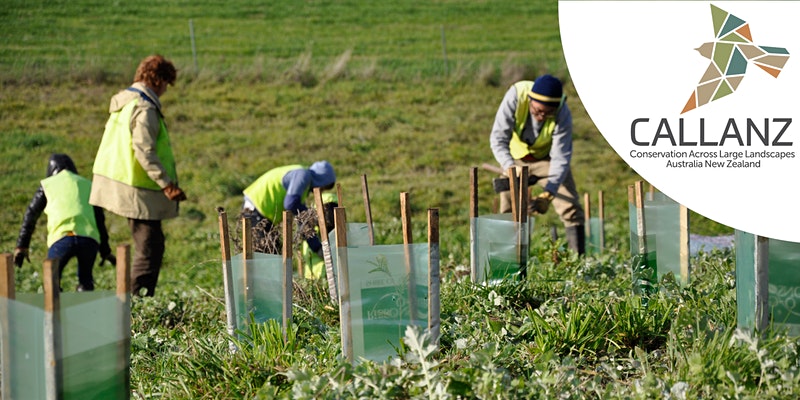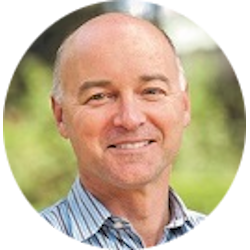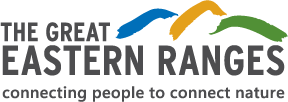
- This event has passed.
Providing Natural Solutions through Connecting Landscapes

Join key experts at this two-hour webinar to learn about the integrated natural solutions that connectivity conservation can provide.
Providing Natural Solutions through Connecting Landscapes is the second event in the international Art of Connecting 2021 webinar series run by the Conservation Across Large Landscapes Australia New Zealand (CALLANZ) network.
Hosted by the CALLANZ founders, Reconnecting Northland, Gondwana Link and the Great Eastern Ranges, the series seeks to aid the practice and science of connectivity conservation through the sharing of knowledge, tools and lessons learnt.
Providing Natural Solutions through Connecting Landscapes, hosted by Penelope Figgis AO, Oceania Vice President of the IUCN World Commission on Protected Areas (WCPA), will bring together expert speakers from a diversity of backgrounds to explore the integrated natural solutions that connectivity conservation can provide, with a focus on the climate, biodiversity and health crisis.
Presentations will be followed by a Q&A panel session with questions taken from the audience.
When: Monday 6 September 2021 at 11.00am-1.00pm AEST (9.00-11.00am AWST, 1.00-3.00pm NZST)
Where: Zoom video webinar
Please RSVP via Eventbrite by Friday 3 September 2021 to secure your spot.
A recording of the webinar will be made available to all attendees for viewing after the event.
Panellists:
Webinar host, Penelope Figgis AO

Penny has held the office of Vice Chair for Oceania of the IUCN World Commission on Protected Areas for the last 15 years. A policy expert she has had a long career in the NGO, academic and government sectors including 17 years as Vice President of the Australian Conservation Foundation. She has made substantial contributions to conservation policy through advocacy at state, national and international levels board membership, public speaking, lecturing, writing and editing publications. Her main areas of expertise are biodiversity and protected area policy, World Heritage, conservation on private lands, and nature based tourism. For her lifetime dedication to conservation she has been twice awarded Australian Honours, becoming a Member of the Order of Australia in 1994 and Officer of the Order of Australia in 2006. In 2020 she was awarded the prestigious Fred Packard Award of the IUCN World Commission in Protected Areas for her major contributions to conservation.
Virginia Young

Virginia contributes to an international research project on primary forests lead by Griffith University, working to increase understanding of the linkages between climate, biodiversity and ecosystem integrity. Her voluntary roles include, Chair of Gondwana Link and Board member of the Great Eastern Ranges Initiative – collaborative, ‘connectivity conservation’ programmes that deliver robust, integrated climate and biodiversity outcomes. A past president of the Australian Committee of IUCN, she continues to support the work of IUCN through involvement in the IUCN Task Force on ‘Primary Forests including Intact Forest Landscapes’ and the World Commission on Protected Areas Climate Change Specialist Group.
Topic: The role of nature in addressing the intertwined climate, biodiversity, health and sustainable development crisis
Celia Witehira

Celia has worked in the Māori environmental sector for over 12 years and currently works as a Connectivity Activator with Reconnecting Northland. Her passion is driven by her desire to leave a healthy environment for the next generation, where tangata whenua have the tools, resources, and knowledge to actively participate in fulfilling their kaitiaki responsibilities. She is of Te Rarawa and Ngapuhi descent, which are independent tribes located in New Zealand’s biodiversity hotspot of Northland.
Topic: From the ground up: Building socially and environmentally resilient partnerships
Justin Jonson

Justin Jonson is the Managing Director of Threshold Environmental, a company specializing in large scale ecological restoration on degraded farmland in south-western Australia. He is a leading restoration practitioner and expert in the development, planning and delivery of restoration projects in species rich landscapes, including those which generate certified carbon offsets. He is a Board member of the Australasian Chapter of the Society for Ecological Restoration (SERA), President Elect of the Large Scale Ecosystem Restoration Section of SER (LERS), and a founding author of both the Australian and International Standards for Ecological Restoration.
Topic: Providing the full ‘basket of benefits’ through biodiverse carbon plantings
Tim Cronin

Tim has spent over 15 years working at the intersection of biodiversity conservation and sustainable development, the last nine years at WWF-Australia. Tim currently leads WWF’s Landscape Restoration and Protection Program, having previously led the Species Conservation program, both covering Australia and Asia Pacific. WWF develops integrated responses to complex environmental problems that tend to involve a combination of on-ground innovation, market transformation and policy reform. Tim has led programs encompassing indigenous-led natural resource management Myanmar, illegal logging trade policy, peatland restoration in Indonesia, responsible sourcing of palm oil and bushfire recovery in South East Australia.
Topic: Cores, corridors and Koalas: Healing bushfire affected landscapes, wildlife, communities and economies
Professor Paul Lavery

Paul Lavery is Professor of Marine Ecology at Edith Cowan University in Western Australia. Paul has been involved in some of the major marine restoration projects in Australia and overseas, including the Peel-Harvey Management Programme and the Boston Harbor Cleanup Programme. Much of his research has been on seagrass ecosystems and has contributed to the development of Western Australia’s first State Environmental Policy to protect seagrass ecosystems. For the past decade his research has focussed on Blue Carbon ecosystems, quantifying blue carbon resources in Australia, Spain and Greece and advising the Commonwealth Government on the development of methods to generate certified carbon offset credits through the restoration of coastal marine ecosystems, such as seagrasses and tidal marshes.
Topic: Restoring the seagrass meadows of Australasia
Dr Sean Weaver

Sean is founder and CEO of Ekos – an environmental financing business focusing on indigenous forest carbon projects and carbon management and zero carbon certification for organisations and products. He is an international expert in indigenous forest carbon, carbon markets and market-based mechanisms for environmental and climate financing. He is an indigenous forest carbon consultant to national and local governments (NZ and the Pacific Islands), multilateral banks (World Bank, African Development Bank), international agencies (UNDP, SPREP) small medium and large businesses/corporations. A former senior lecturer in Environmental Studies at Victoria University of Wellington. He has a PhD in Forestry (forest conservation), and is based in Christchurch, New Zealand.
Topic: Carbon financed indigenous reforestation at scale



